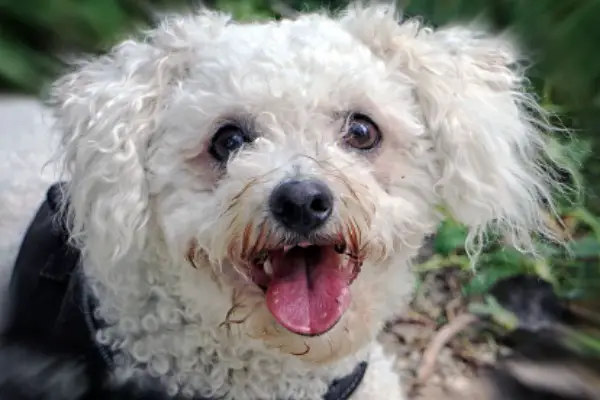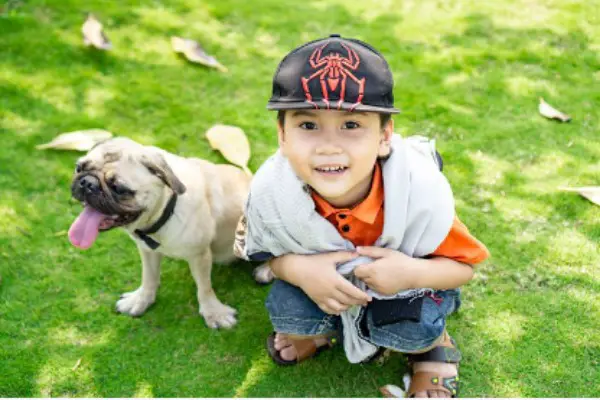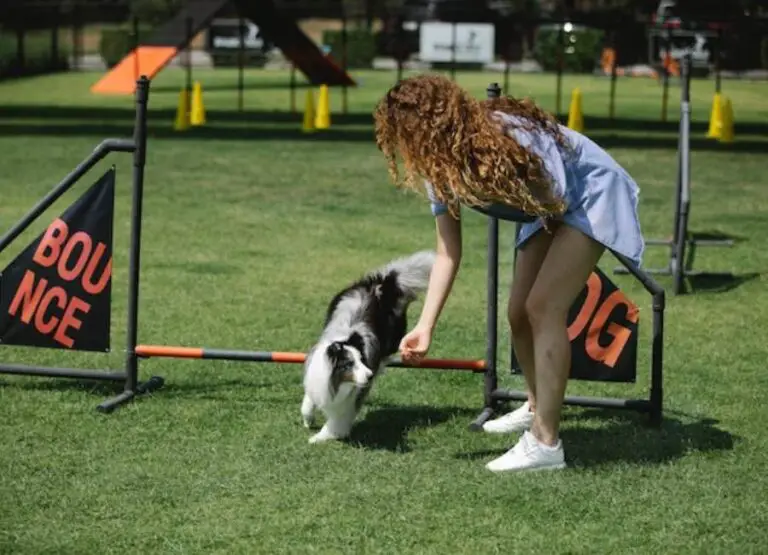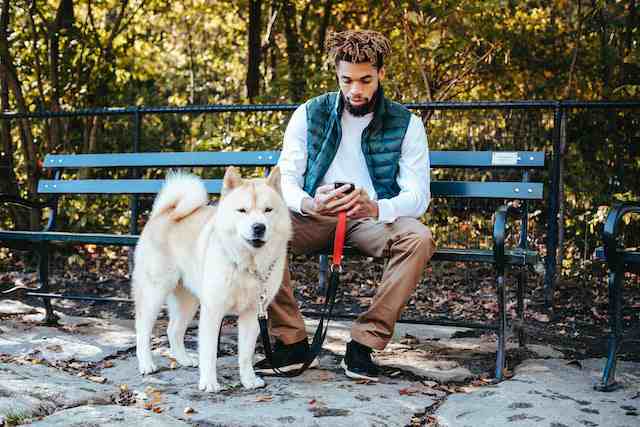Do Bichon Frise Bite: 9 Bite Triggers & Helpful Tips

Dog lovers always ask do Bichon Frise bites, this is because every dog can bite when pissed off, so do Bichon Frise bite? Let’s find out together!
In this post, we will be discussing all the common bite triggers that may lead to Bichon Frise biting.
We will also discuss ways to prevent or control these triggers to avoid Bichon Frise biting. Before we proceed, let me quickly answer your question do Bichon Frise bite!
Do Bichon Frise bite
Bichon Frise is a non-aggressive dog that does not bite, making them sociable canines because they were selectively bred to be companion dogs, Bichon Frise does not bite and is extremely playful with both children and adults, as well as other dogs.
Lack of socialization, training, and other reasons we will be discussing in this post, on the other hand, may cause Bichon Frise to bite.
During the puppy stage, Bichon Frise puppies may bite and nip as part of the teething process.
Why do Bichon Frise bite
Some of the most prevalent causes of Bichon Frise bite are as follows:
1. Bichon Frise do bite when frustrated or depressed
A major cause that may contribute to unexpected biting behavior in Bichon Frise is when they are overwhelmed and frustrated.
Bichon Frise may bite out of irritation or unhappiness if they are trapped in an uncomfortable or unpleasant environment.
A Bichon Frise may become irritated if they are unable to acquire what they want because they are restrained by an owner or a leash.
When a Bichon Frise redirects or bites at something or someone who is holding them back, it is known as a redirected bite.
If you haven’t socialized your Bichon Frise, this type of bite is more likely to occur. Especially in the case of younger Bichon Frise.
2. Bichon Frise do bite when startled
If startled, little dogs like Bichon Frise can bite, especially if they’ve been resting, sleeping, or relaxing.
A startled Bichon Frise may get disoriented and confused about where they are and what is going on, resulting in a bite.
This is especially prevalent in senior Bichon Frise, who may have poor vision and/or hearing and get confused if jolted awake.
Always be cautious not to disturb a sleeping Bichon Frise, and instruct your children not to climb into your Bichon Frise beds or disturb a sleeping Bichon Frise.
3. Bichon Frise can bite to defend themselves
A Bichon Frise may bite in an attempt to defend itself due to insufficient owner training or an attack on its territory.
The majority of Bichon Frise, particularly those who have not been properly socialized, think that biting is the most effective method to defend themselves.
It is your responsibility to offer a safe environment for your Bichon Frise and to teach them that biting is not an option.
Begin socializing your Bichon Frise with humans and other animals as soon as possible.
4. Bichon Frise can bite due to fear
Fear is one of the most common causes of a Bichon Frise bite; if your Bichon Frise feels threatened, he will bite.
Bichon’s fear causes him to indulge in useless behaviors like whining, barking, and biting aggressiveness.
A Bichon Frise bites most of the time in response to hostility, fear, or menace, or when danger approaches.
Maintain a safe distance between your Bichon Frise and all things of dread, or better yet, socialize them with their fear.
5. Bichon Frise can bite due to possessiveness
Your Bichon Frise may bite if they have something valuable that they don’t want to share, such as toys, food, or chews.
In resource guarding, biting to safeguard valuables is a typical occurrence.
Some dogs, regardless of breed, have strong protective instincts and may bite if they believe their home is being invaded or if they believe a member of their family is in danger.
6. Bichon Frise can bite when injured or in chronic pains
Being sick or wounded in a Bichon Frise may be tremendously stressful, frightening, and upsetting.
Even the most tolerant Bichon Frise can bite if it is wounded or in pain.
If your Bichon Frise is hurt, bear in mind that they can bite if they are touched, so exercise caution when lifting or transporting your injured dog.
If your Bichon Frise’s behavior suddenly changes, make an appointment with your veterinarian as well as a local positive reinforcement trainer.
Lack of appropriate socialization is one of the most prevalent reasons for Bichon Frise behavior concerns, which can develop into aggressive biting if not addressed.
Poor or no socialization is dangerous for both you and your dog, and it is one of the primary causes of Bichon Frise attacks.
The absence of essential socialization in Bichon Frise leads to needless biting, nipping, animosity, and sudden assaults.
Make sure your Bichon Frise has been properly socialized if he bites a lot while he’s around other dogs or humans.
8. Bichon Frise can bite due to anxiety or too much stress
This is extremely dangerous and is one of the primary causes of negative Bichon Frise behaviors including biting, whining, and nipping.
When a Bichon Frise has separation anxiety, it is aggressive toward everyone, including its owner, and may bite unnecessarily.
The wrath usually lasts longer and is more intense, with the majority of the time concluding in biting.
To minimize separation anxiety in Bichon Frise, consult your doctor or buy a second pet to keep your Bichon Frise company.
Because Bichon Frise can become enraged and attack everyone in their vicinity as a consequence of stress, it’s critical to remove any causes of tension.
Too much stress and anxiety can also lead to Bichon Frise biting their paws.
9. Overly excited can cause Bichon Frise to bite
When Bichon Frise is extremely excited, whether by new toys or during playing, they are prone to nipping and biting.
Extremely excitable Bichon Frise will leap over you, bite, and nip at you, so be careful what games you play with your Bichon Frise.
This bite is more prevalent in youngsters, and the strange thing is that your Bichon Frise is completely unaware of how bad it is.
Bichon Frise is known for being aggressive when playing if not properly trained, so don’t overdo it with yours, or you’ll be in trouble.
Ways to control or teach Bichon Frise not to bite
Here are some tips and suggestions to help you control or teach your Bichon Frises not to bite unnecessarily:
1. Start early obedience training
Training your Bichon Frise not only ensures a pleasant life for him, but it also improves the way he interacts with the world around him.
At the absolute least, give your Bichon Frise basic training, and continue your dog’s training program throughout its life to reinforce the skills you’ve taught it.
Rather than punishing or shouting at your Bichon Frise, make the necessary changes when your Bichon Frise strikes unnecessarily.
Remember that teething toys are the greatest way to educate your Bichon Frise not to bite while he or she is still a puppy.
Positive reinforcement may be used to educate your Bichon Frise not to bite or to divert his focus away from biting.
When Bichon Frise comes into contact with items that are larger than they are, they become irritated.
If you want a stable and quiet Bichon Frise that won’t attack other animals, this is one of the most important things to do.
Early socialization is necessary for your Bichon Frise to avoid developing a variety of unwanted traits later on.
3. Train Bichon to ignore distractions
Under some conditions, dogs can become violent. Many dogs get protective when they see people because they are more accessible.
You can educate your Bichon Frise to avoid other dogs, distractions, and humans to reduce unnecessary biting.
Positive reinforcement is the most effective technique to do this.
If your Bichon Frise becomes protective, instead of rewarding him, you should put him in ‘time out.’
Only while you’re giving the dog his treat will he be forced to stay still and be secure.
You may train your Bichon Frise to keep walking if you use prizes to distract him and keep him interested.
4. Introduce your Bichon Frise to object of fear
Loud noises or sounds are one of the things that make Bichon Frise nervous, therefore avoid exposing your Bichon Frise to them.
These are mostly intended to teach your Bichon Frise that loud noises aren’t a threat and that he or she should remain calm in their presence.
If your Bichon Frise becomes anxious when the doorbell rings, try socializing him with it.
If your Bichon Frise can’t stand seeing the mailman, call him and introduce him to your Bichon Frise.
Introduce your Bichon Frise to whatever makes him nervous, so he may become accustomed to it.
5. Train Bichon Frise to accept hands close to his mouth
When your fingers desire to go into your mouth, you must teach them not to bite your hands.
Give them a little treat and rapidly remove it out of their mouth to do this.
All of this is merely to ensure that your Bichon Frise learns that biting is never acceptable.
Allow your Bichon Frise to pick treats from your hands as many times as he wants, then shove them into his mouth.
Brush your Bichon Frise’s teeth occasionally as a reward for allowing you to touch his teeth.
With the information provided on this page, I hope your question do Bichon Frise bite was answered!

![Training Tips For Dogs [13 Types of Dog Training] Training Tips For Dogs](https://petcreeks.com/wp-content/uploads/2023/09/dog-5020587_640.jpg)



![How To Discipline a Beagle [10 Insights] How To Discipline a Beagle](https://petcreeks.com/wp-content/uploads/2023/05/How-To-Discipline-a-Beagle-768x555.jpg)
